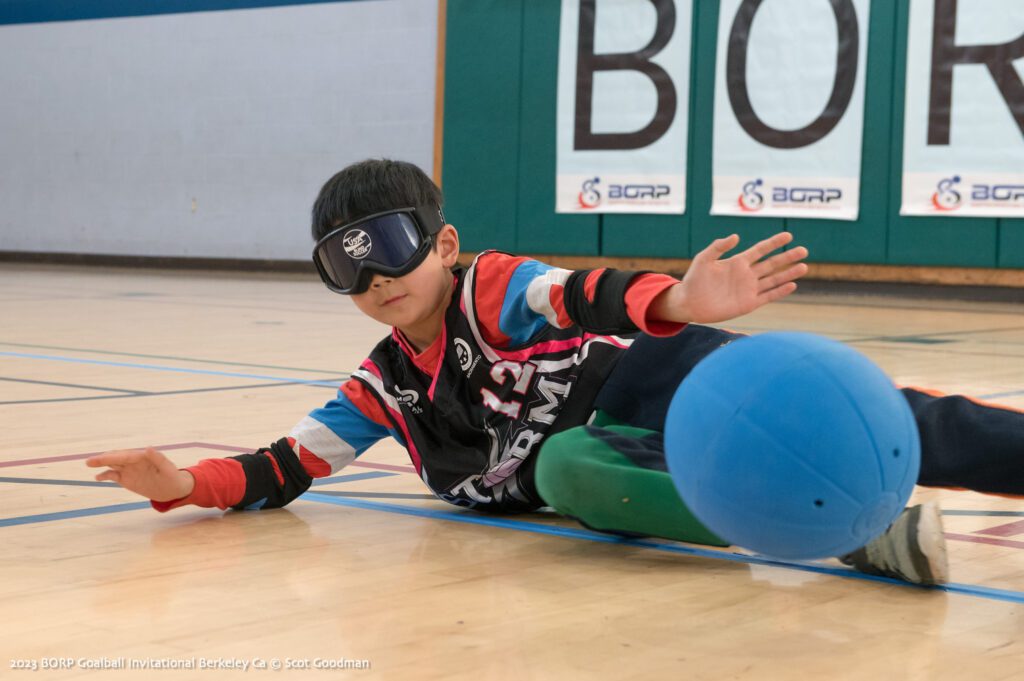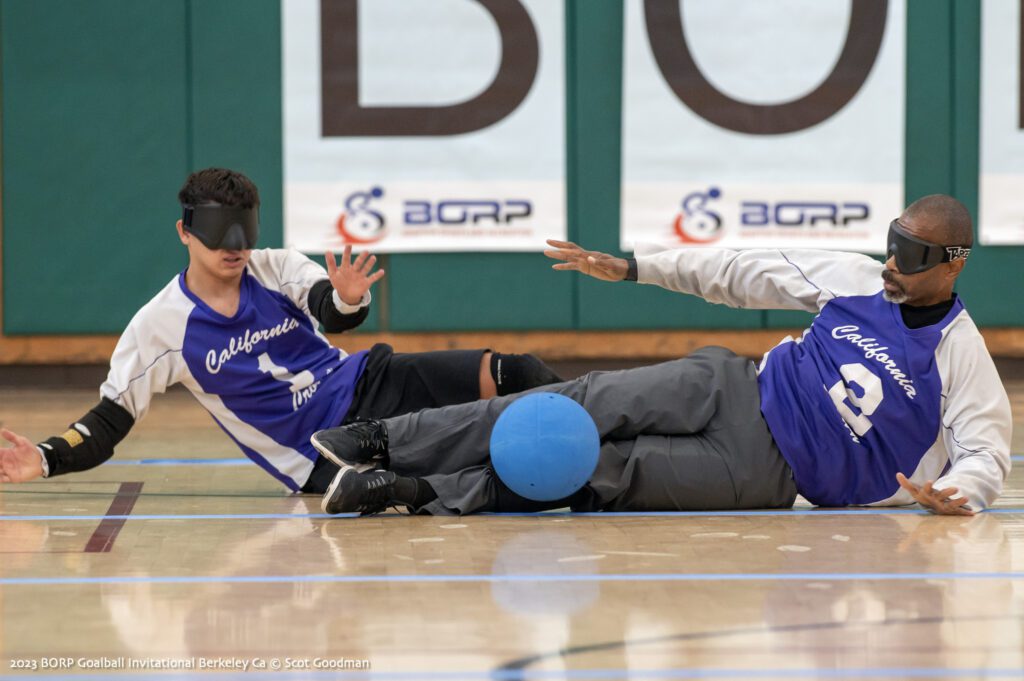After their annual goalball tournament was interrupted by the coronavirus pandemic, the Bay Area Outreach and Recreation Program is bringing it back, thanks to the Foreseeable Future Foundation.

In 1975, two women in the California Bay Area set out to create an organization that promoted independence, improved physical health and social integration of people with disabilities.
Susan Sygall, a University of California Berkeley student, and Diane Schechter, who had just completed her bachelor of science degree in recreation from the University of Colorado, received funding from the Berkeley City Council to launch the Berkeley Outreach Recreation Program (BORP).
Sygall, who was in a wheelchair, had been surprised to learn there were virtually no recreational opportunities for people with disabilities in a city that prided itself on being a leader in the independent living movement.
After designing an innovative recreation program focusing on activities and support services as a class project, Sygall was encouraged by one of her professors to submit the program as a funding proposal to the City Council, who enthusiastically provided financial support. As a result, BORP was officially incorporated as a nonprofit in 1976.
Originally housed at the Center for Independent Living, BORP, which changed its name to Bay Area Outreach and Recreation Program in 1982, moved to the UC Berkeley campus. Over the years, it has become nationally renowned for its approach to recreation. As it nears its 50th anniversary, BORP offers a variety of team sports, outdoor recreation and fitness activities for people of all ages and disabilities. Blind and visually impaired individuals can participate in goalball, cycling, rock climbing, tai chi classes and other programs.
“We’re really one of the pioneers in the area,” said Emily Seelenfreund, who has served as BORP’s executive director since last June. “We helped UC Berkeley start a goalball program. We helped (it) get off the ground and we used to practice there, which is something really special, to help a college integrate that onto their campus.”
A wheelchair athlete born in New York and raised in New Jersey, Seelenfreund moved to California in 2021. She worked as a disability rights attorney and served on BORP’S board of directors before taking over as executive director. She also co-founded ParaCliffHangers, a nationwide program for disabled climbers. An adaptive sports enthusiast since age five, Seelenfreund played collegiate wheelchair basketball and captured medals in three Para climbing World Cups.
“This (executive director) job came up when I was on the board. I was like, ‘wow, that sounds like the coolest job ever’. How amazing to consult in adaptive sports all day. I applied kind of on a whim. I didn’t think I would get it, and it worked out. It’s been really great.”
The goalball program runs year-round except for a brief summer break. It caters to both male and female participants of all ages, including children ages 14-18. While other groups stress the competitive side of the sport, BORP’s program strikes a nice balance between competition and recreation.
“None of our teams are super high-level. We don’t play in the most competitive leagues, but people are very dedicated, come to practice every week. Community is a big part of what makes the sport special. People are invested in the community aspect.”
Before the COVID pandemic, BORP’s goalball program hosted an annual tournament comprised of teams in the area. A small tournament was held last November, but Seelenfreund wanted to bring back a full-scale event.

BORP’s budget had become tighter since the pandemic, so bringing back the tournament would require additional outside funding.
While researching potential grants, Seelenfreund came across the Foreseeable Future Foundation and sent in an application. The biggest expense for an event of this magnitude is staff time, rentals and referees. BORP was accepted as a grant recipient, allowing the organization to plan a tournament sometime next fall.
“We really appreciate being able to have dedicated funding for the tournament. It’s rare for people to have the opportunity to play in front of family and friends. Our goalball team used to travel a bit more prior to COVID. The Bay Area is a really expensive place, so to be able to provide an opportunity to play locally is really special.”
BORP conducts other fundraisers during the year including the Revolution Ride, Roll and Stroll, a peer-to-peer event featuring hundreds of bike and cycling enthusiasts committed to raising money for BORP and its programs. The most recent ride took place in May and raised $240,000.
“You’ll see people on all different kinds of bikes: tandem bikes, hand cycles, recumbent bikes, side-by-side bikes. It’s really great to see BORP’s mission on display at that event.”
BORP offers something for everyone, whether they are wounded veterans, kids or adults with disabilities. As an adaptive athlete herself, Seelenfreund is proud to be part of an organization that is committed to breaking down barriers for those who wish to be physically and socially active.
“Because of BORP, they have a community again. For so many people, it’s more than sports. Being in a position to facilitate that is really special.”
